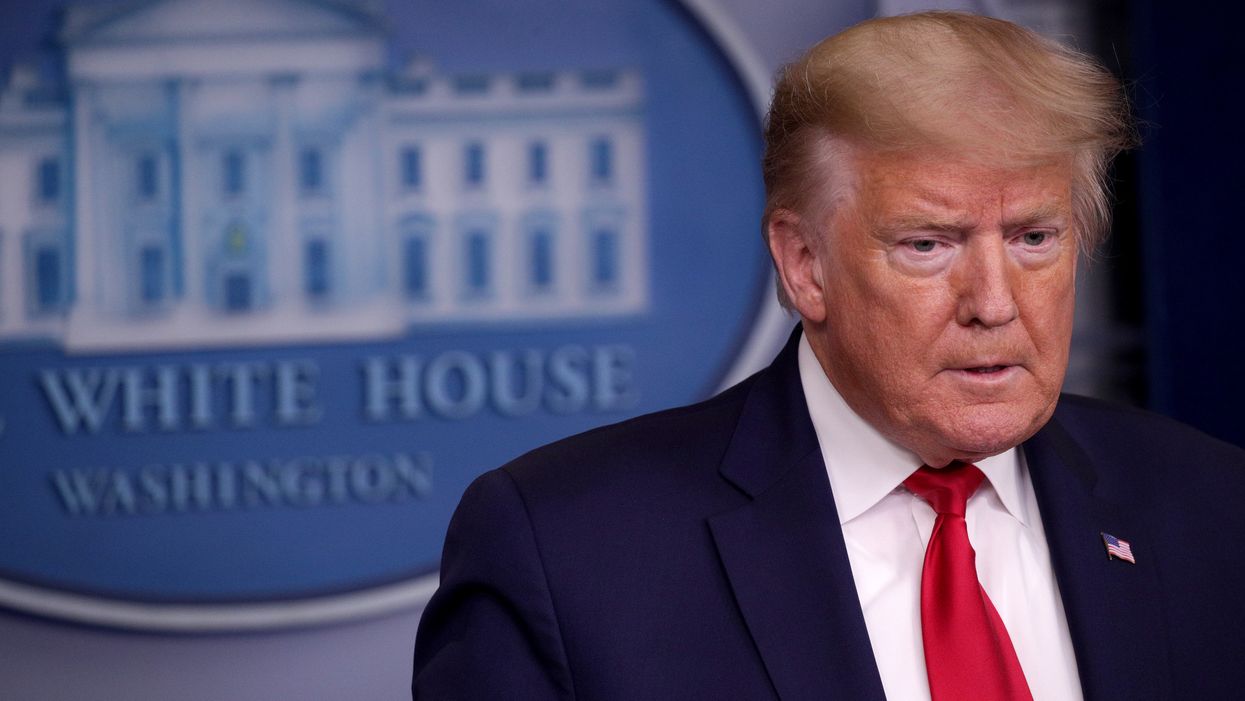Brian is executive director of the Project On Government Oversight, a nonpartisan group that investigates misconduct and conflicts of interest by federal officials.
Government oversight is under attack right now.
In just a few days last week, President Trump removed an inspector general for doing his job, stalled operations of the new Pandemic Response Accountability Committee and attacked an acting inspector general for releasing a report that he didn't like. These actions undermined all IGs across the federal government — the independent government watchdogs charged with investigating federal agencies and departments and holding their behavior accountable.
Trump's actions exposed just how vulnerable inspectors general are, making clear that greater independence is needed. Inspectors general currently serve at the pleasure of the president, and one perceived misstep can cost an IG their job, as we saw when Trump fired Michael Atkinson as inspector general for the intelligence community.
Now we're set to rely on inspectors general to oversee more than $2 trillion in emergency spending. That's an amount almost half the size of the entire annual federal budget, and the president will be able to remove any of them at-will if he doesn't like what he sees. Indeed, Trump made an apparent attempt to undermine the Pandemic Response Accountability Committee when he replaced the acting inspector general who had been named to lead it.
Independent oversight of the coronavirus economic rescue package will be crucial to making sure that taxpayer dollars go to those who need it most, not to the politically well-connected. In order to ensure oversight is conducted independently, Congress must pass a law protecting inspectors general from unwarranted removal by the president. And it needs to do so right now.
Inspectors general were created to make sure Congress has eyes and ears within executive agencies. Through audits, investigations and work with whistleblowers, these watchdogs are ensuring that you as a taxpayer are getting the greatest possible value from an executive branch that is supposed to serve you.
Failing to give all inspectors general protection against getting fired other than "for cause," like those enjoyed by the members of the Merit Systems Protection Board and the IG at the U.S. Postal Service, would be tantamount to Congress closing its eyes, throwing money at a problem — and just hoping for the best.
Congress last revamped the laws governing IGs a dozen years ago, most notably by giving them law enforcement powers. The House version of the bill, passed with strong bipartisan support, would have prevented any president from removing an IG for anything but good cause — such as violation of the law, neglect of duty and abuse of authority — but those protections were cut out in the Senate. Congress should now finish what the House started in 2008.
Rep. Jim Cooper of Tennessee, who led that effort, introduced legislation last week that would give inspectors general for-cause removal protections and seven year-terms. Fellow Democrat Chris Murphy of Connecticut says he will push a companion bill in the Senate, and I sincerely hope this effort gains steam.
With hundreds of thousands of lives and trillions of taxpayer dollars on the line, we cannot afford to leave our federal watchdogs unprotected. The stakes are too high to allow relief funds to end up in the pockets of the politically connected at the expense of families trying to make rent.
There's no real "success" to be found after a pandemic. This is undoubtedly a crisis that has shaken us to our core and will have effects for years or even decades to come. But Congress can and should mitigate loss where possible — including loss of money to waste or fraud that could have gone to hardworking families.
To do that, they need to bolster IG independence for this current crisis and beyond.



















Trump & Hegseth gave Mark Kelly a huge 2028 gift